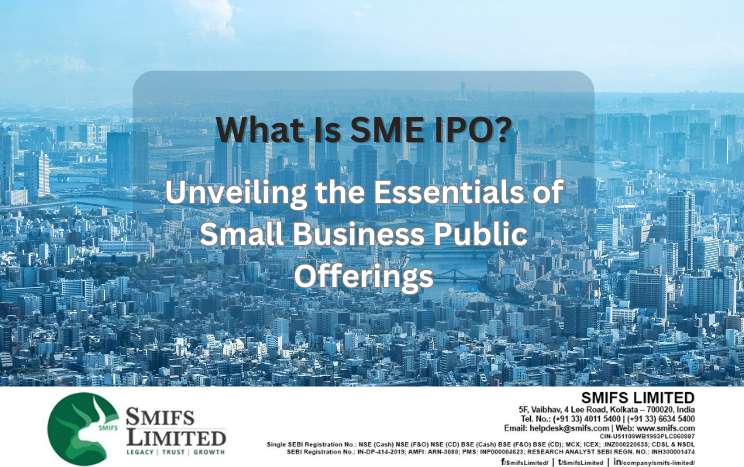IPO FAQ addresses frequently asked issues concerning IPO in the Indian Stock Market. Investors can use this list of IPO FAQs to better understand the topic and get answers to their questions.
You may also read: What is an IPO?
-
What is book building?
According to SEBI guidelines, book building is the process of eliciting and building up demand for securities that a corporate body proposes to issue, and then assessing the price of those securities to determine how much of those securities should be issued through the use of a notice, circular, advertisement, document, information memoranda, or offer document.
-
What is the minimum number of days for which the bid should remain open in book building?
The book should be open for a minimum of 3 working days.
-
What is the main difference between offer of shares through book building and offer of shares through normal public issue?
When shares are offered through book building, investors are not aware of the price at which securities will be distributed; nevertheless, when shares are offered through regular public offerings, investors are aware of the price beforehand. When it comes to Book Building, the demand is known each day while the book is being constructed. However, when it comes to a public matter, the demand is known after the matter concludes.
-
Can an open outcry system be used for book building?
No, as per the guidelines set by SEBI, only an electronically linked transparent facility is allowed to be used.
-
Is the issue price for placement portion and net offer to public the same?
Yes.
-
What is the floor price in case of a book building?
The lowest price at which bids can be placed is known as the floor price.
-
Can an individual investor use book building for making an application?
Yes.
-
Can more than one issue be held simultaneously using the NSE IPO system?
Yes
-
Can the bidder revise his bids?
Yes, the bidder can revise his bids.
-
What are the formalities to be completed by members before participating in an IPO?
The member must send the membership department a one-time undertaking in the required format. Members must submit their requests using the format required, providing their user IDs and VSAT numbers.
-
Which members will be allowed to participate in book building of issue?
The exchange will be notified of the list of members who are qualified to participate in the offering by the Book Running Lead Manager that the issuer has selected. They will be able to submit bids for the initial public offering.
-
How to install the IPO software in trading terminal?
The NTIPOTDR.EXE file must be copied into the root directory by the members, who must then use the command NTIPOTDR -D -O to inflate the file. The executable file mentioned above can be found in the common/ipo directory on the extranet.
-
What proof can the bidder request from trading member for entering bids?
The system automatically generates a unique transaction registration slip each time a bid is entered by a trading member. The transaction registration slip provides information about the client’s name, the price, and the number of shares bid for.
-
Is it possible to enter bids less than the floor price?
No, if the bid price is less than the floor price, the system immediately rejects it.
-
Is the margin amount a compulsory field in order entry?
The margin amount is a required numeric column. Nevertheless, the member must enter 0 in the margin amount column if he does not collect any margin.
-
Can members set up order limits for themselves?
Sure. Order limitations may be established for each member’s corporate manager for all dealers that report to him.
-
Will the member be able to see the bid details for all the issues?
The bid details for each issue will be visible to the user. He can only submit bids, though, for issues for which the Book Running Lead Manager has designated him as a member.
One must become familiar with the basic phrases utilized in the process to have an educated grasp on initial public offerings (IPOs). The following table lists some of the terms that are frequently used:
| Key Terms | Definition |
| Issuer | An issuer may be a business or organization seeking to raise capital for its operations by issuing shares on the secondary market. |
| Underwriter | A banker, financial institution, merchant banker, or broker can all function as an underwriter. It helps the business underwrite its stock.
Additionally, the underwriters pledge that in the event that investors decline to purchase the stocks offered at the IPO, they will subscribe for the remaining shares. |
| Fixed Price IPO | The term “fixed price initial public offering” (IPO) refers to the price that certain corporations set for the first selling of their shares. |
| Price Band | A seller who offers an upper and lower cost limit, the range in which interested buyers can place their bids, is said to be using a price band value-setting technique.
A buyer’s decision is guided by the price band range. |
| Draft Red Herring Prospectus (DRHP) | After receiving permission from SEBI, the DRHP is the document that notifies the public of the company’s IPO listings. |
| Under subscription | Under subscription occurs when the quantity of securities applied for is less than the quantity of shares made available to the public. |
| Oversubscription | When fewer shares are made available to the public than are applied for, it is known as oversubscription. |
| Green Shoe Option | It alludes to the option of overallocation. This underwriting agreement allows the underwriter to sell more shares than the firm originally intended. It occurs when a share’s demand is higher than anticipated. |
| Flipping | Reselling an IPO stock in the first few days in order to make a quick profit is known as “flipping. |
| Issue Price | The price at which investors will purchase shares of common stock prior to an initial public offering (IPO) business starting to trade on open markets is sometimes known as the asking price. |
| Lot Size | Lot size is the minimum quantity of shares up for bid during an initial public offering. It is necessary to bid in multiples of the lot size if you would like to purchase additional shares. |
| Lock-up Period | An interval following the initial public offering (IPO) in which executives and company founders are prohibited from selling their shares. |
| Grey-Market | A marketplace where shares of upcoming public companies are exchanged before their formal listing. It presents the prospective listing price. |
| Listing Agreement | A contract that outlines the duties and conditions of the listed firm and is signed by the company and the stock exchange |
| Offer for Sale (OFS) | A process for selling shares whereby current owners (promoters or other investors) sell their shares to the general public without the business receiving any money in return. |
| Prospectus | It is a legal document that includes information about the offering, risks, and the company’s finances. Potential investors receive it in order to assist them in making wise choices. |
| IPO Registrar | A business that oversees the IPO refund process, distributes shares, and processes applications |
| Go public | The procedure via which a privately held firm makes its initial public offering (IPO) of stock available to the general public |





